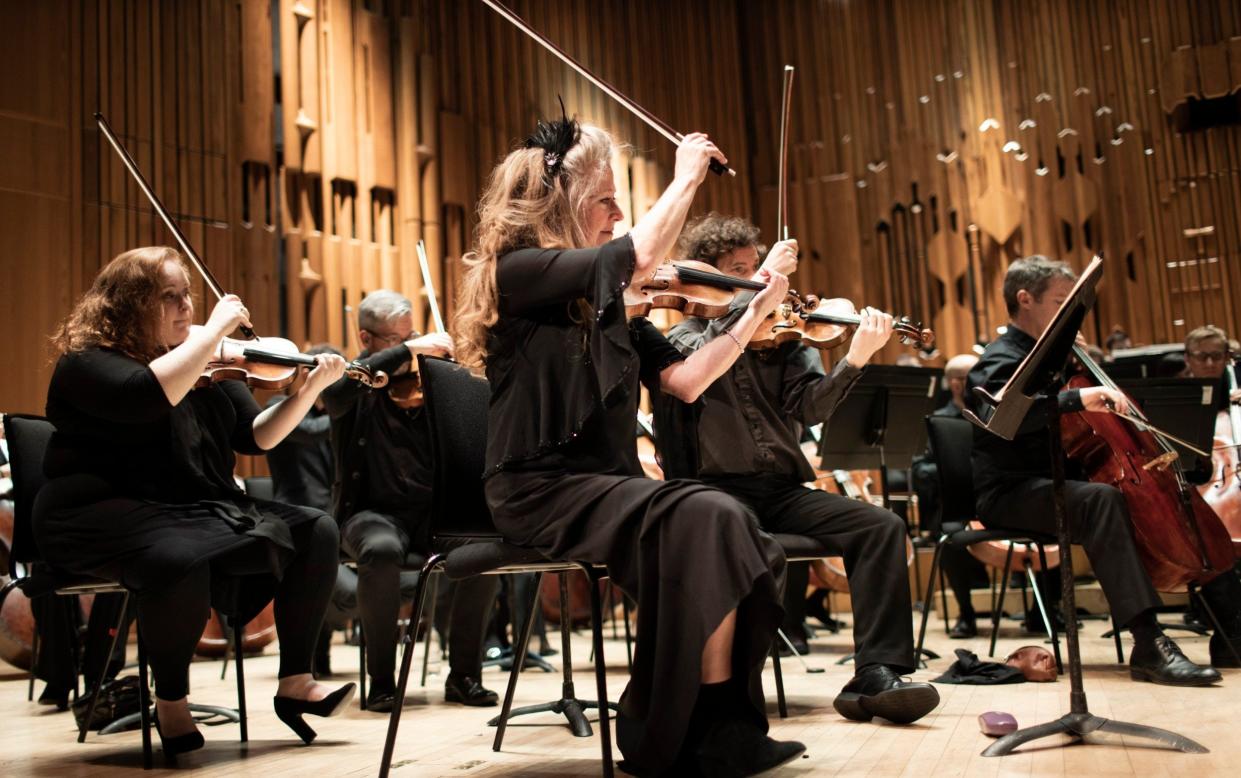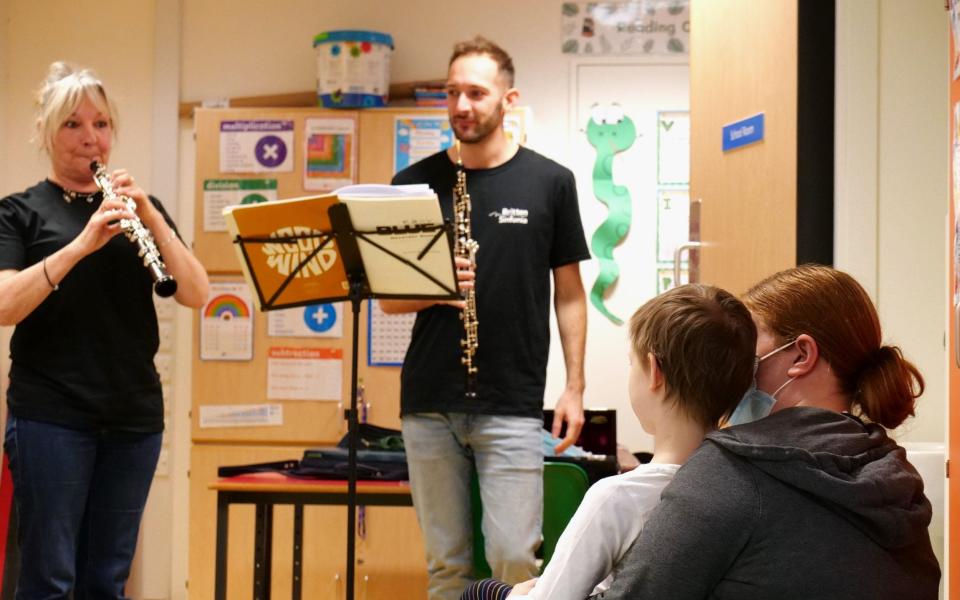‘Classical music is under fire’: in the bunker with the embattled Britten Sinfonia

The day before news broke of Arts Council England’s devastating cut to Britten Sinfonia’s funding, Meurig Bowen, the orchestra’s chief executive, was enjoying a family outing in Pembrokeshire. “That day,” he tells me by phone, “I received an email from the regional office of the Arts Council asking me what number they could call me on at 8.30 the next morning… They only phone to tell you about bad news. I hardly slept that night.”
His anxiety was understandable. That funding represented around 25 per cent of the orchestra’s total income – which may not seem an overwhelming percentage, but like every orchestra, the Britten Sinfonia operates on a financial knife-edge. Lacking the much more generous support given to orchestras in Germany or France, it has to be nimble on its feet, maximising box-office revenue, developing new marketable skills as a provider of education services, and engaging in a non-stop fundraising campaign. Even a modest cut in its funding could mean cancelling a concert series, sacking a staff member, or shrinking the orchestra.
And yet the news, when it came, was far worse that Bowen could ever have imagined: a cut of 100 per cent. He wasn’t just shocked – he was baffled. “We had worked so hard to show how what we do fits with the council’s new 10-year strategy, Let’s Create. Many of the principles of the strategy are ones we absolutely believe in: levelling up in the provision of the artform; getting our audiences to be creative themselves; going deeper into communities that are culturally underserved. I mean, how could any right-thinking person who believes in the power of classical music not want more people to be engaged and moved by it?”
Shortly after, the classical world was hit by the BBC’s decision to abolish the BBC Singers. “It was a brutal addition,” says Bowen, “to the growing sense that classical music is under fire… Everyone at Britten Sinfonia felt acute sibling pain when that initial decision was made.” On Friday, after a great outcry and under public pressure, the Corporation announced a temporary reprieve for the outfit. “I’m glad this ugly decision has been rethought,” Bowen adds. “They’ll be able to join us, after all, for long-planned performances of Handel’s Messiah, in Mozart’s orchestration, this December.” Nonetheless, he warns, “the difficulties facing classical music are still immense.”
The Britten Sinfonia’s record in bringing orchestral music to the east of England, an area previously starved of orchestral music, has been stellar. By gathering a core of wonderful musicians who are loyal to the orchestra, it has raised the performance level to astonishing heights. Let no-one dismiss it as a “regional” group: it can compete with any chamber orchestra anywhere and attract top-class solo musicians from around the world, from English trumpeter Alison Balsom to Finnish violinist Pekka Kuusisto and American-Iranian harpsichordist Mahan Esfahani. Possibly the world’s most celebrated living conductor-composer, Thomas Adès, conducted the orchestra through a complete series of Beethoven symphonies from 2017 to 2020, which is still talked about in awe-struck tones. Numerous composers have written pieces specially for the orchestra, including senior figures such as James MacMillan and younger talents such as Nico Muhly.

It was vital to Bowen that this artistic excellence was not jeopardised. “For us the challenge in preparing our application was: how do we bring all that artistic ambition together with the Arts Council’s demand to serve new communities, in a way that we can believe in sincerely, and not just as a cynical exercise to win the cash?”
The Britten Sinfonia’s sincerity can hardly be doubted when you look at the whirlwind of community-based activities in which the players have recently been involved. In just one week, they rehearsed for a series of concerts in 15 different primary schools in Peterborough, while also performing the final events in a long series of workshops and concerts at a maximum-security prison in the Fens. In the midst of this, they played two concerts in Norwich and Bury St Edmunds, joined by cellist Laura van der Heijden playing a newly-composed cello concerto by composer Dobrinka Tabakova.
Soon, the orchestra will give a performance of Fauré’s Requiem alongside choir Polyphony in one of the world’s most prestigious venues, the Concertgebouw in Amsterdam, followed by performances in the east of England. “It will be exactly the same people on stage,” says Bowen. “We don’t have an A-team for prestigious venues and a B-team for local towns in the east of England. When we did our lockdown pop-up concerts in little community centres, we had our top players involved.”
Given all this, it’s hardly surprising that Bowen and the orchestra were in a state of total shock when the Arts Council decision was announced. “We know other orchestras have suffered. Some had cuts of 11 per cent – some, like the London Sinfonietta, had a brutal cut of 41 per cent. But why did we in particular go from 100 per cent right down to zero?

“We need to know, so we’ve been trying to get answers to specific questions. Was it the nature of our work, or the location of it? Was it the nature of our management and our board? Was it the cost of our activities? But there’s never been any clarity. They just keep falling back on the phrase that it was a ‘difficult balancing act’.”
It has all been a bitter pill to swallow, though Bowen refuses to be bitter: in fact, he describes himself as quietly confident. “Fortunately,” he says, “the Arts Council took the decision to continue our funding at current levels until October, to give us time to find alternative sources of funding. And it is possible that in the future we may be able to get help from the Arts Council for specific projects.”
But given what has happened, the Britten Sinfonia now has to accept the necessity of becoming independent of the Arts Council. This month, Bowen launched a fund-raising campaign, Play On. “We aim to raise £1 million to plug the three-year hole in the orchestra’s funding. It’s essentially a crowdfunding campaign. We’re appealing to those people who love what we do to realise that they might need to do a little bit more, by setting up a direct debit for the next three years. And, of course, we’re doing our best to find wealthy donors. So far it’s looking good – we’ve had lots of small donations and a few substantial ones.”
For professional orchestras, a future without the Arts Council would until recently have seemed unthinkable. It was meant to be their friend. The experience of the Britten Sinfonia has shown that this is no longer true. The bond of trust between our great orchestras and the Arts Council has been broken.
And yet: if the bond with the audience is strong, as it surely is in the case of the Britten Sinfonia, all may not be lost. This group could just be the trailblazers who prove that a future without the Arts Council can actually be bright.

